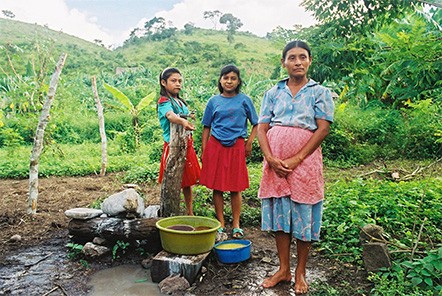Millennium Development Goals: On the Crest of Success, USAID Focuses on Challenges

On March 6, 2012, the United Nations announced that the proportion of people living without access to safe drinking water was decisively cut in half five years ahead of the 2015 target. Over the last decade, the Millennium Development Goals (MDGs) for water and sanitation have represented a set of harmonizing objectives around which donors, implementers, and countries could unite and collaborate. The success of our cumulative efforts in meeting these goals is an encouraging milestone in the movement toward universal access to safe water. however, now is not the time to slow down, as 783 million people still live without access to safe water. We must expand on our success, learn from where we have fallen short, set new goals, and adapt our efforts through improved and sustainable methodologies, innovative and scientific solutions, and aid effectiveness.
Through collective action, USAID, other U.S. Government agencies, and numerous partners in the international community are pleased to have contributed to the provision of first time access to safe drinking water for millions around the globe. With water, sanitation, and hygiene (WASH) programs in 66 countries, USAID spent more than $520 million on WASH in FY 2010 alone.
But as we celebrate the success of reaching the MDG for improved water access, the world is far from meeting the MDG target for sanitation. Globally, access to water increased to 89 percent in 2010, while improvements in sanitation have only increased to 63 percent. That is still well below the 75 percent MDG target. Achieving this target is tremendously important. Every year, 1.4 million children die from diarrhea — one child every 20 seconds. No other single intervention brings greater public health returns. USAID recently launched the “Every Child Deserves a Fifth Birthday” campaign, to envision a world where diarrhea is no longer one of the top three killers of children under five. Since diarrhea is primarily caused by unsafe water, inadequate sanitation, and poor hygiene, USAID must target the people and places most in need.
We must also strike a balance between what is judged as success and what is actually sustained success. There have been impressive quantifiable achievements in the number of latrines and water points built, and these hardware components of programs have received the most attention. The MDG for water and sanitation does not address or measure the fact that many latrines and water supply systems fall into disrepair and go unused. USAID and its partners must ensure the sustainability of functioning hardware by establishing systems to maintain them. Such systems can, however, be a challenge to get right – as is shown by the failure to maintain as many as 30-40 percent of village pumps in Africa.
One key to sustainability is collaborative engagement with our partners to establish effective monitoring and evaluation systems so we know whether hardware installed is maintained in a functioning condition. The software components of our programs – awareness, training, behavior change, and cost-recovery – are just as important as the hardware itself. Well planned and coordinated software interventions can ensure that related water and sanitation hardware investments result in sustained behavior change necessary for improving health conditions.
USAID will take a holistic approach in implementing solutions, sharing innovations, and scaling up successful programs through new and innovative partnerships in the water sector. Among these, the March 2011 Memorandum of Understanding between USAID and the World Bank has spawned six working groups to serve as platforms for collaborating around and advancing methodologies for the water sector and its cross-cutting components. USAID’s Development Innovation Ventures funding program creates partnerships with innovators and social entrepreneurs, including a new $17 million partnership with the Gates Foundation called WASH for Life to promote cost-effective and scalable WASH services. And, the Sanitation and Water for All partnership and new U.S. Water Partnership will allow USAID to increase donor focus and coordination, pool resources and collaborate on solutions, and increase project sustainability through improved information sharing, monitoring, and evaluation.
The MDGs for water and sanitation have been a clarion call to address global water and sanitation challenges. But as we move forward, USAID and our partners must work together and focus on the key challenges at hand to advance beyond these goals and create a world where every society has enough water to meet their needs and children live to celebrate life well beyond their fifth birthday.
John Pasch, Incoming USAID Water Office Director







Comment
Make a general inquiry or suggest an improvement.